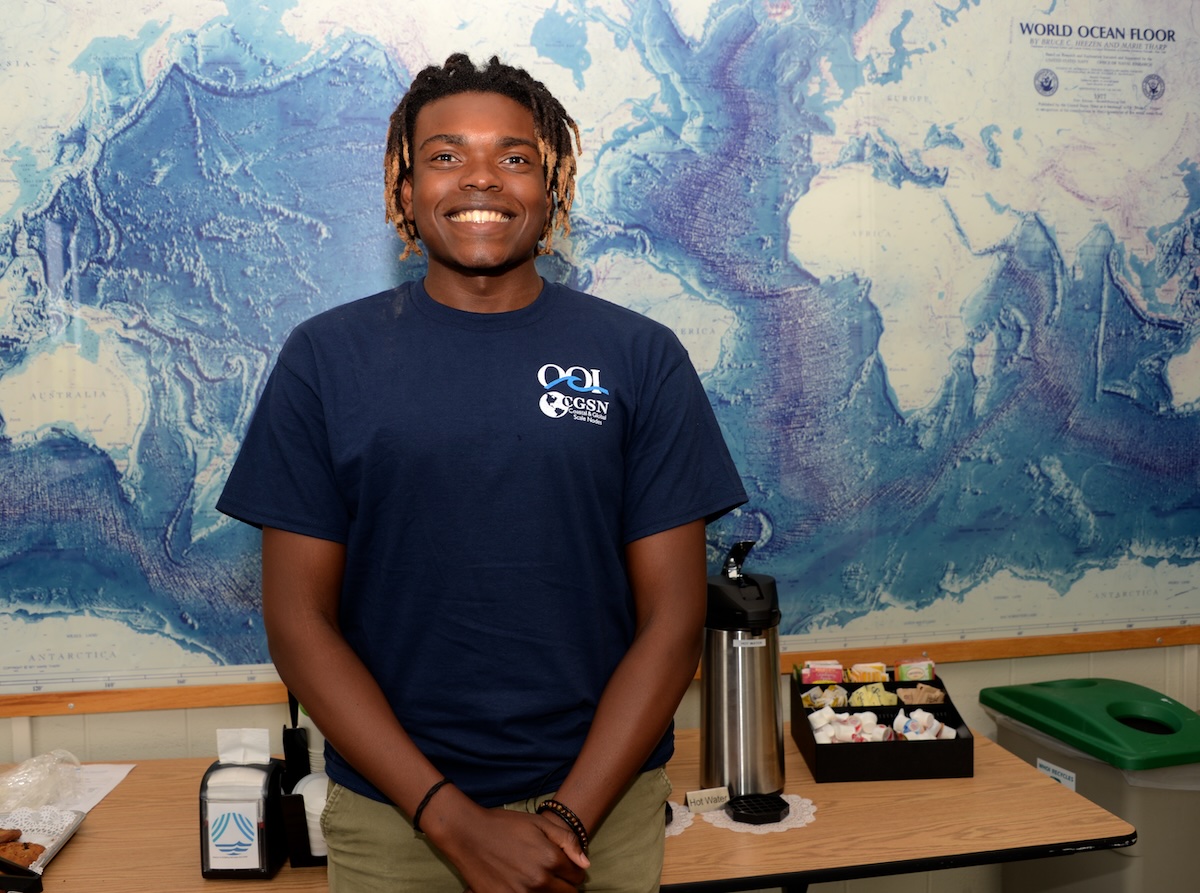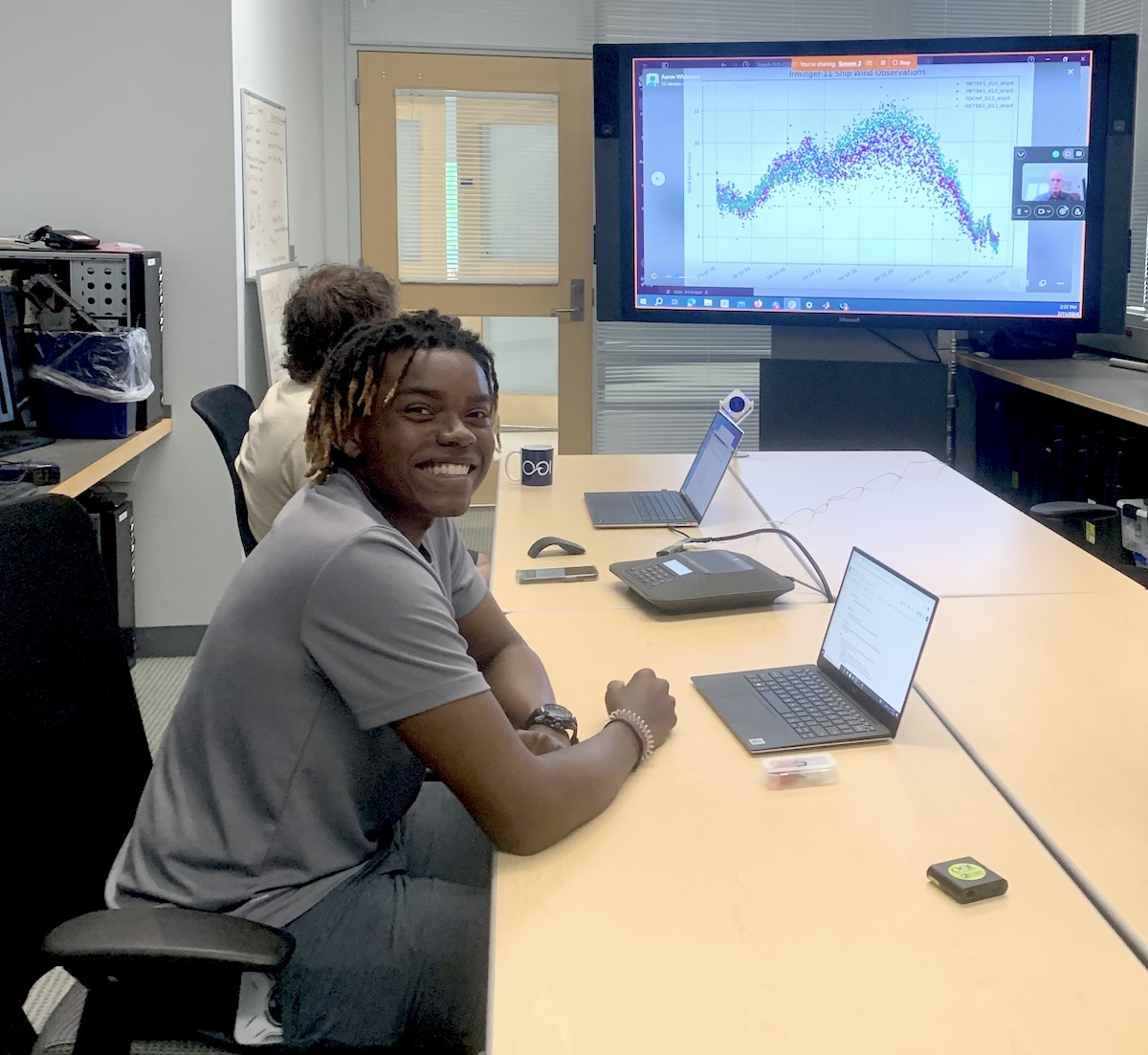For my current project, I am working with Andrew Reed and Stace Beaulieu in the Ocean Observatories Initiative Data Science team, validating air and sea flux data in high latitude environments. What I find most interesting about my day-to-day is seeing all of the data come through in real time and being able to use it.
Since being in Woods Hole I have gained more inspiration to work in the biological and physical oceanography fields. I have always wanted to obtain a master’ degree in marine science; however, now I feel as though I will pursue a PhD. and hope to come back and join the WHOI/MIT Joint Program.
Representation to me is about inspiring the younger generation. If the youth can see someone who looks like them or shares a similar background in marine science, it inspires them to get involved in it, too. Marine science has been historically dominated by white men and women, and generally lacks diversity. This narrows perspectives, so having a more global perspective will lead to new problem-solving skills in marine science.
Growing up in an African-American household, I never thought that I would end up in marine science, as this career was never presented to me as an option. Being from San Diego, I had access to the ocean on the occasional school beach trip and it always sparked my curiosity.
I knew that this was the path I wanted to take after my 5th grade class took a trip to Sea Camp San Diego. I was exposed to the world of marine science for the first time, and since then I fell in love with it.
Having never left the West Coast prior to the PEP program, I was unfamiliar with the world of marine science on the East Coast, and didn't know exactly what to expect. I knew that marine science was very broad, but since being here I have found that it is a tightly-knit community where you can find support all over and new networking opportunities everywhere.


